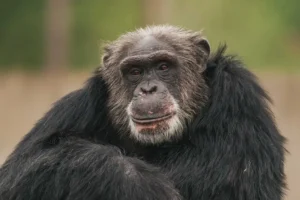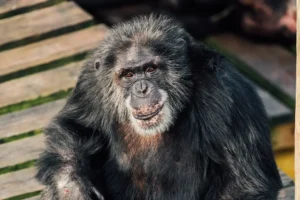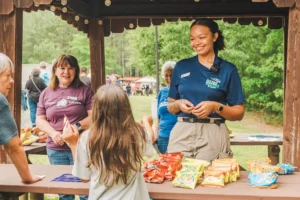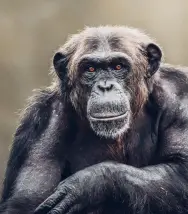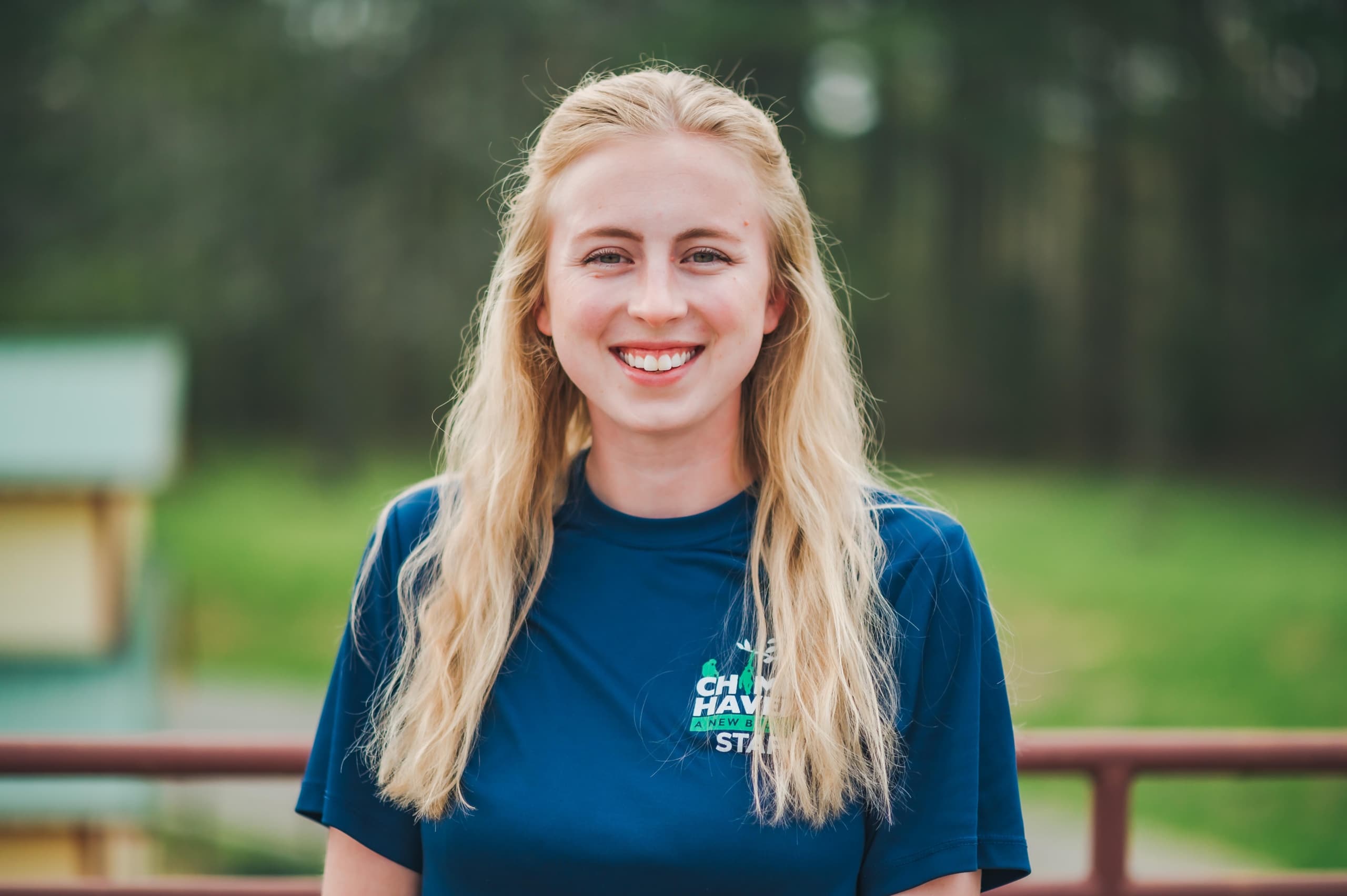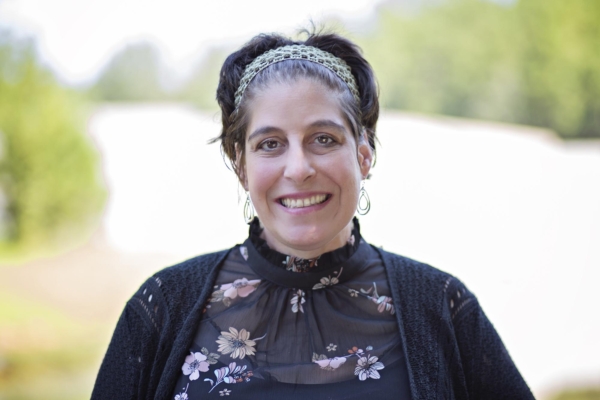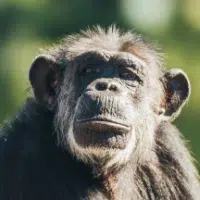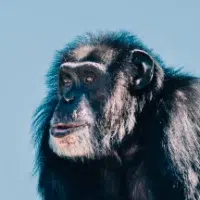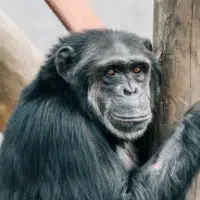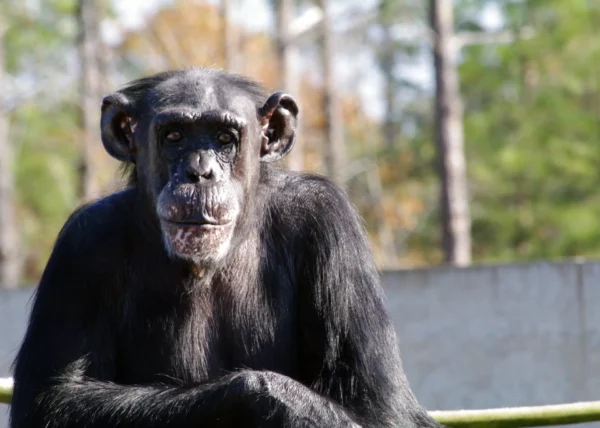
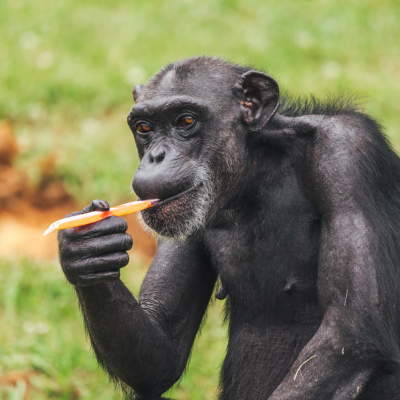
All gifts matched this July!
Help stock the sanctuary for the summer – all donations are doubled! (Up to $15,000)
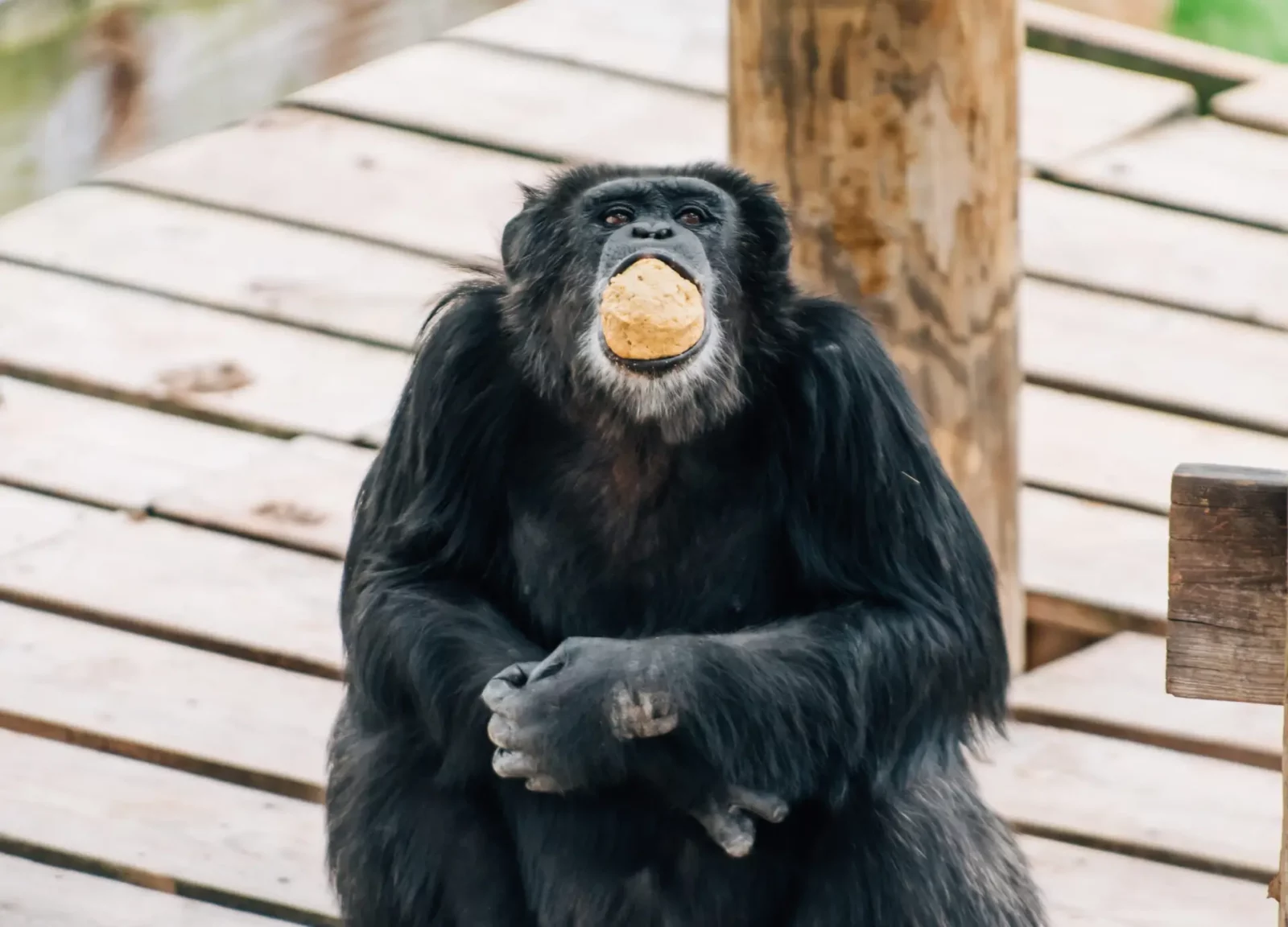
If you’ve ever visited Chimp Haven, you may have heard some terms and phrases we use as caregivers that are unique to life at the sanctuary (and honestly sound a little strange at first!). Below are ten definitions that will have you speaking caregiver in no time!
Chow (verb)
To “chow” a group of chimpanzees is to provide them with their daily chow biscuits. The chimps receive these large, protein-dense pellets twice each day to provide them with extra nutrients. Caregivers pour the biscuits into canisters attached to the chimps’ bedrooms, and the chimps get to take what they please. Each group gets a certain amount based on group composition and the chimps really love them!
Use it in a sentence: “I already chowed Spider’s group this morning.”
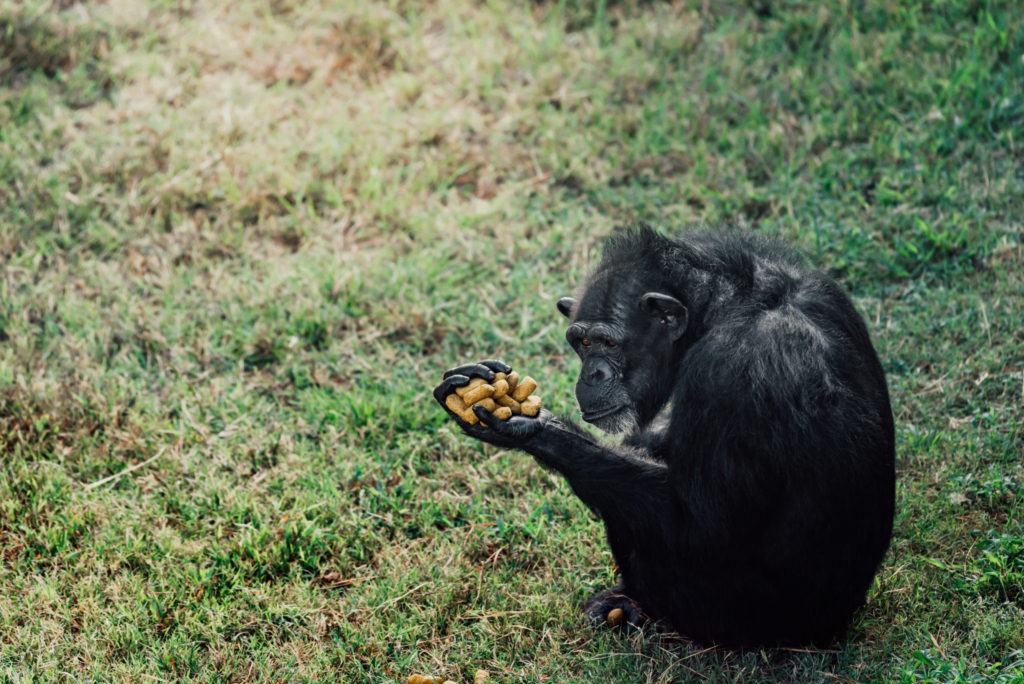
Wad (noun)
A “wad” is how the chimps like to enjoy their biscuits. They will gather up a mouthful of chow, go to a lixit (their water source), douse their mouthful of biscuits in water, and create a semi-solid mash. They’ll hold the wad in their lip or hand and take bites from it. We think it doesn’t seem that appetizing but who are we to judge! Perhaps they’re onto something.
Use it in a sentence: “You should have seen the impressive wad Cocoa Puff had today!”
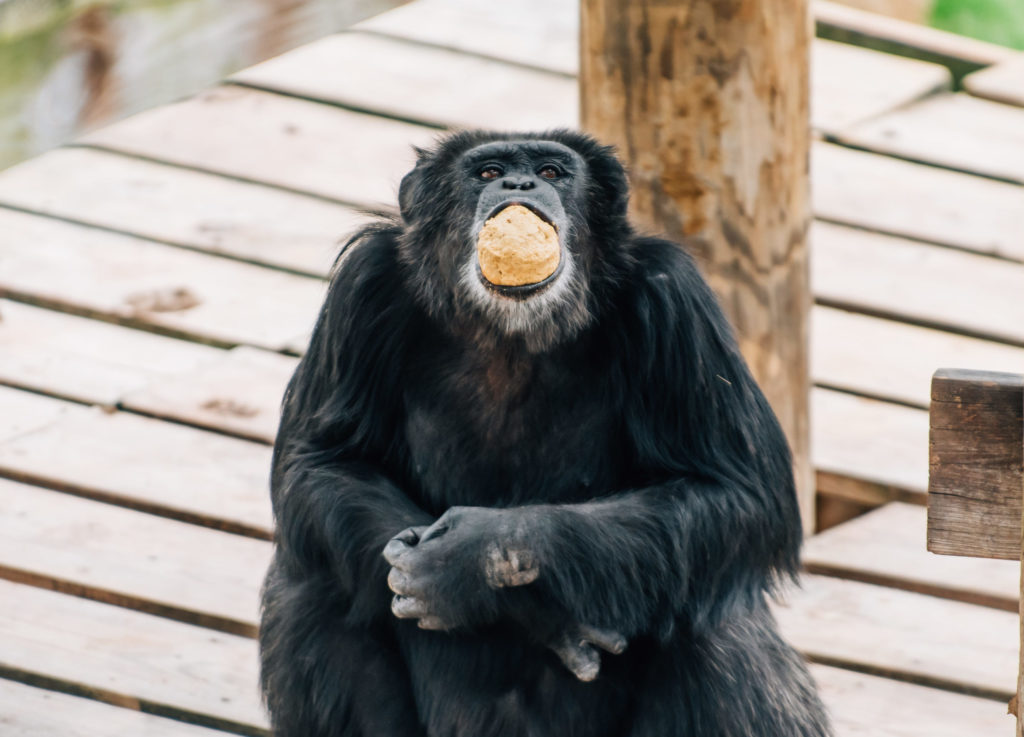
Shifting (verb or noun)
“Shifting” is what we call the process of asking the chimpanzees to leave their bedrooms and move to their outdoor space to allow us to clean up their rooms each day. If it’s raining, or if the temperatures outside are too hot or cold, we won’t ask the chimps to shift outside — instead, we’ll ask them to move to a neighboring bedroom while we clean. Of course, here at the sanctuary it’s always up to the chimps, and sometimes they don’t feel like shifting. That’s okay; usually we’ll come back and try again when they are feeling up to it.
Use it in a sentence: “Shifting at building B went really well this morning – everyone went outside.”
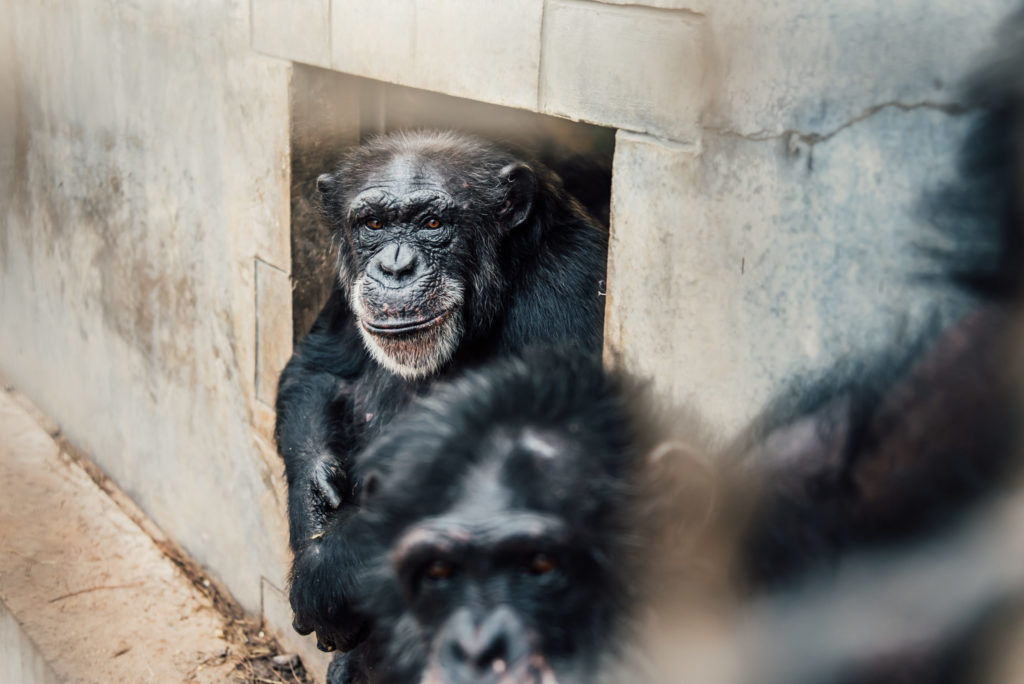
Food Toss (noun)
A Food Toss is the process of feeding the chimps their daily diet of fresh fruits and veggies. A Food Toss may be conducted by tossing the chimps’ diet over the top of their open air corrals or placing it in the troughs attached to their play yards. We typically use a Food Toss for the chimps’ main meal each day to encourage the chimpanzees to “shift” outside while we clean their bedrooms.
Use it in a sentence: “When I did Zort’s food toss, Fancy was really invested in her kale.”
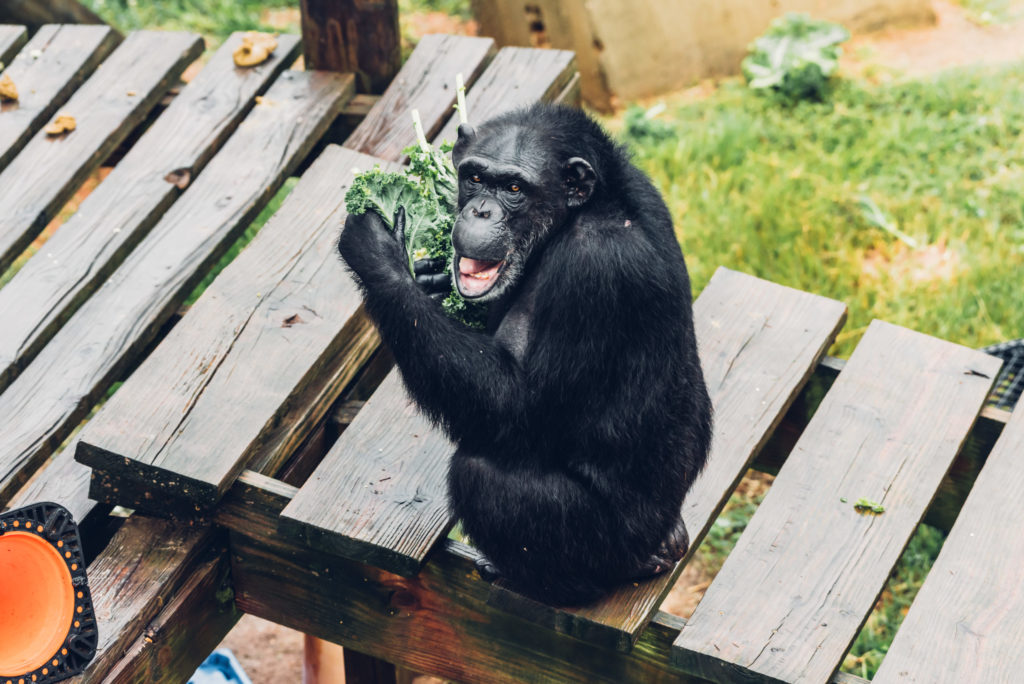
Hosey Squirt (noun)
When a caregiver gives a chimp a drink from the water hose, it’s referred to as a hosey squirt. While the chimps always have access to multiple water sources in their rooms or outdoor spaces, sometimes the hose water is too good to pass up. When staff is hosing down an area, it’s very common for a few chimps to wander up and wait, (sometimes patiently, sometimes while making loud raspberries with their lips) for a quick drink.
Use it in as sentence: “Hulk got so many hosey squirts today.”
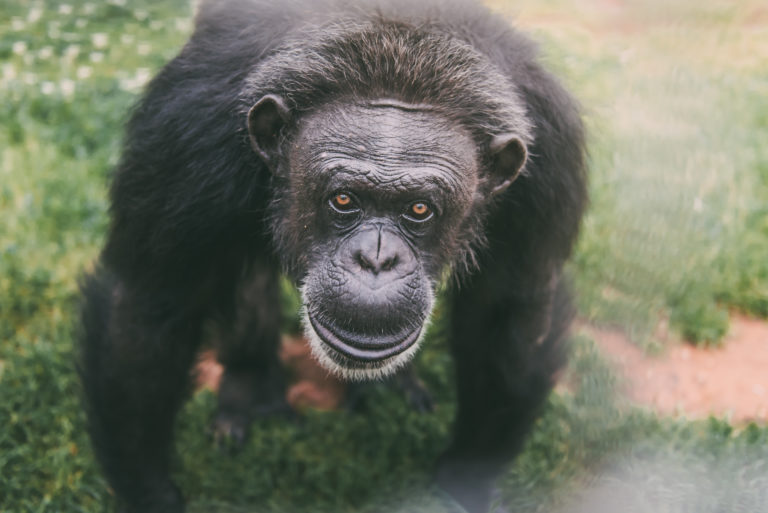
Baby Earl (verb or noun)
Credit for this term goes to our Positive Reinforcement Training Program Coordinator, Rebekah. Care staff use large and small pressure washers to wash down all sorts of spaces at the sanctuary each day. When we received smaller versions of our usual large pressure washers, the idea was tossed around that these “baby” versions should each be designated an individual name. Creativity must have been running short, because the name “Earl” stuck for all of them and has ever since. It’s universally used among care staff and no one has ever looked up the given name for the little guys.
Use it in a sentence: “I baby earl-ed the driveway of C today and it looks so good!”
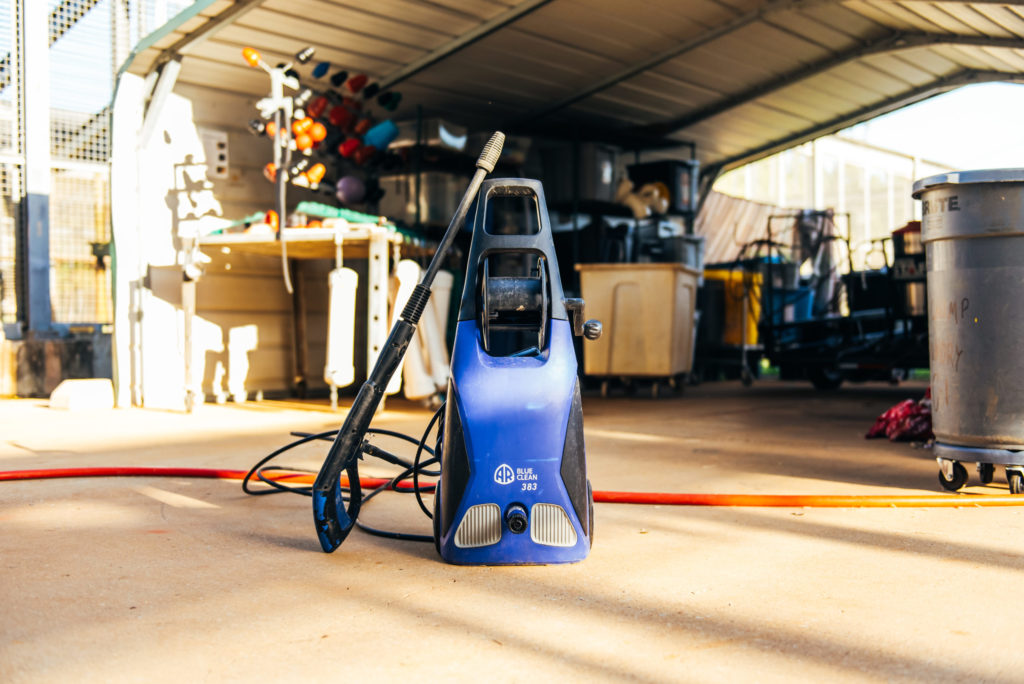
Spoon Tickles (noun)
In order to keep all of our chimps and staff safe and healthy, Chimp Haven is a “no touch” facility, meaning that we don’t actually touch our chimpanzees with our hands. Instead, we use long handled spoons to interact with the chimps while still keeping a safe distance between us. Some of the chimps are ticklish, and when we interact with the spoons, hearing their breathy laughs is one of my favorite things.
Use it in a sentence: “I tickled Jonah’s toes with a spoon this afternoon and he loved it.”
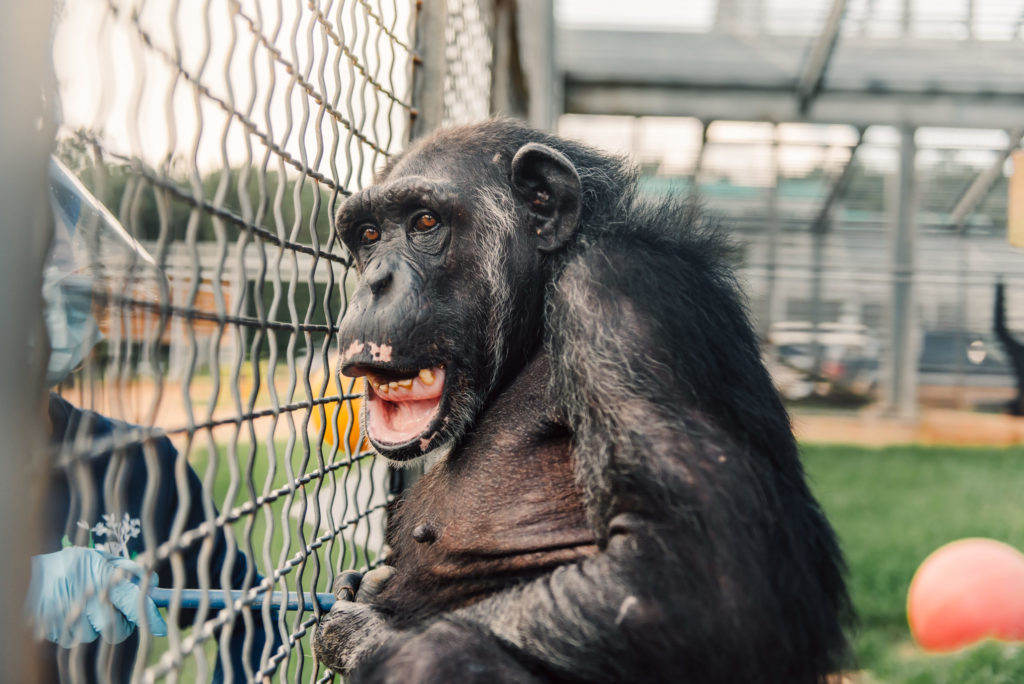
Baby (noun)
This is a term we use to refer to various objects the chimps will sometimes “adopt” and carry around for an extended period of time. Opal is one of our most consistent baby carriers. She has a set a plastic children’s keys with or around her at all times and sometimes more than one set is in play. Other notable favorites include: Gracie carrying around hats and Latoya’s love for a specific type of small stuffed monkey.
Use it in a sentence: “The chimps got stuffed animals today and Ellie has adopted a stuffed puppy as her baby.”
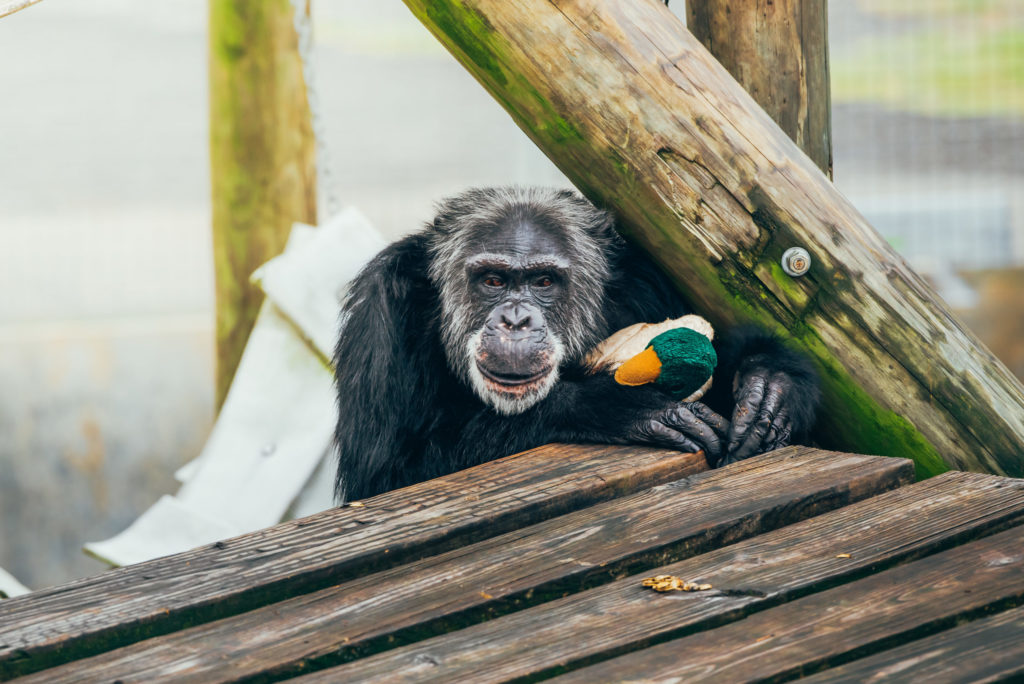
Chimp Tetris
Chimp Haven has a variety of different living and play spaces, and we often rotate chimp social groups so they’re able to experience a variety of these spaces. That process of transferring a chimp group into a new space is often complicated, and thus referred to as “chimp tetris” (another clever term coined by Rebekah). Chimp moves often require a lot of planning to meet the needs of the group being moved and also the other groups that occupy the space around them. Because of all the careful planning and thinking ahead involved in these moves – chimp tetris was born!
Use it in a sentence: “We did some chimp tetris this morning at Building B and Jonah’s group is loving their new yard.”
Nan (noun)
This is the shortened form of “banana.” As you can imagine, we handle a lot of bananas around here!
Use it in a sentence: “While I was passing out nans today Axel was being really sweet.”



